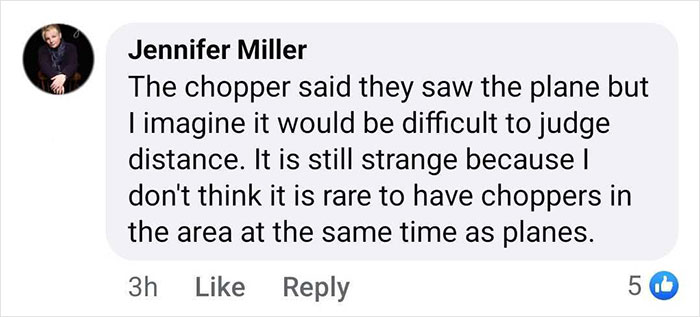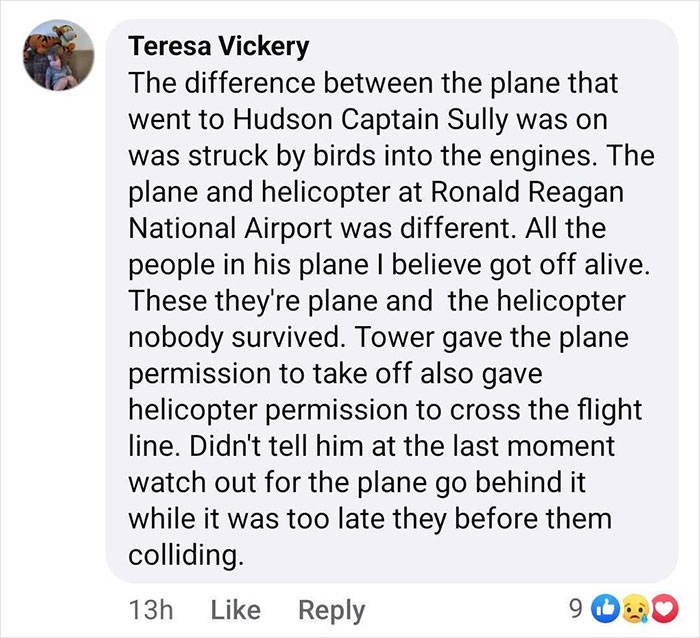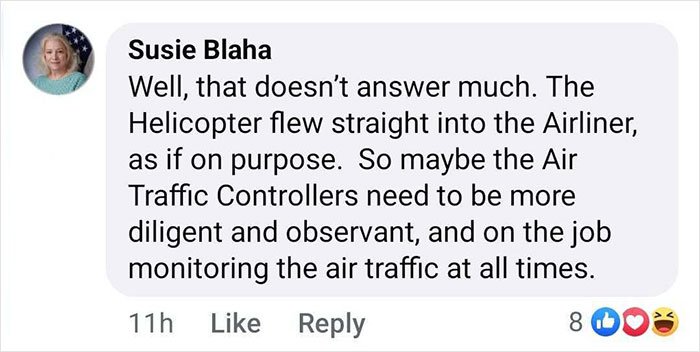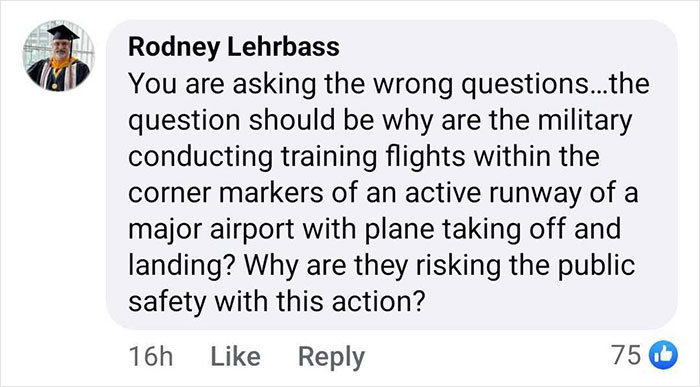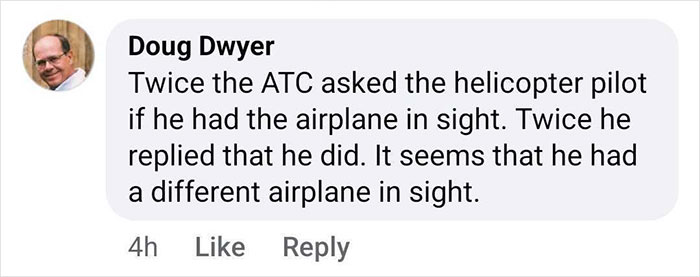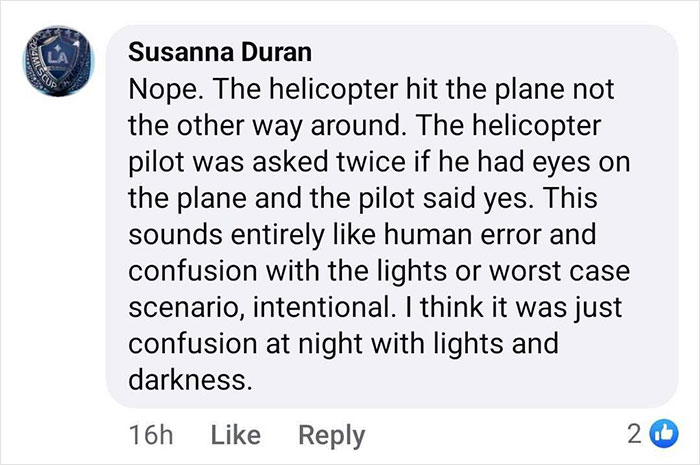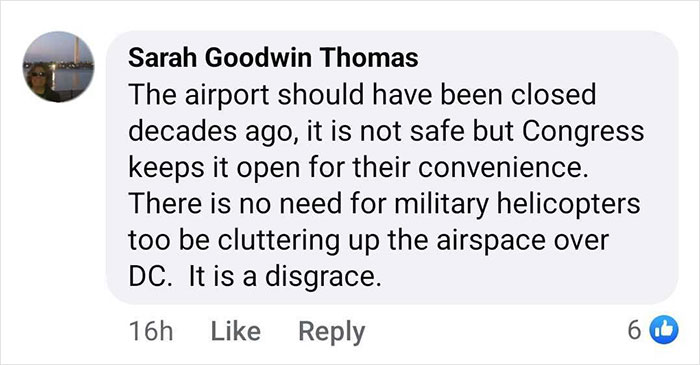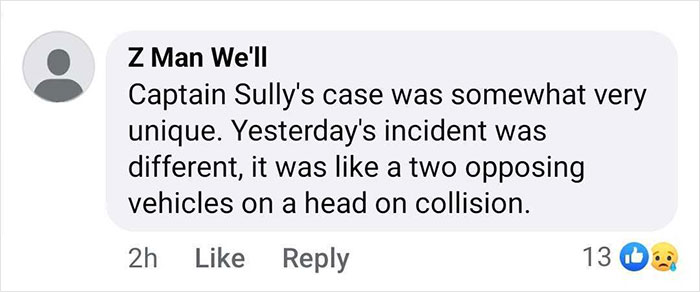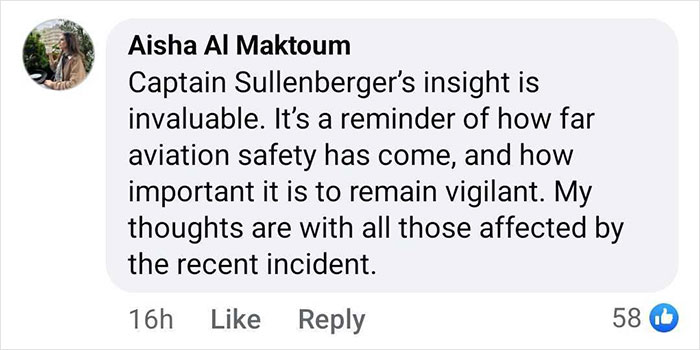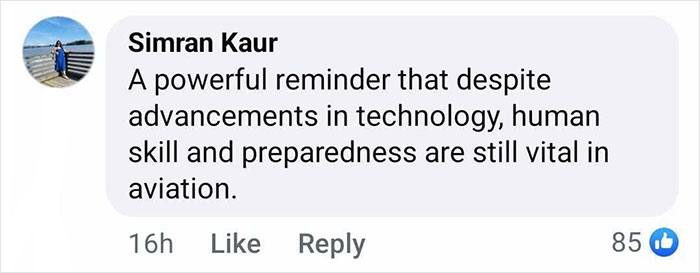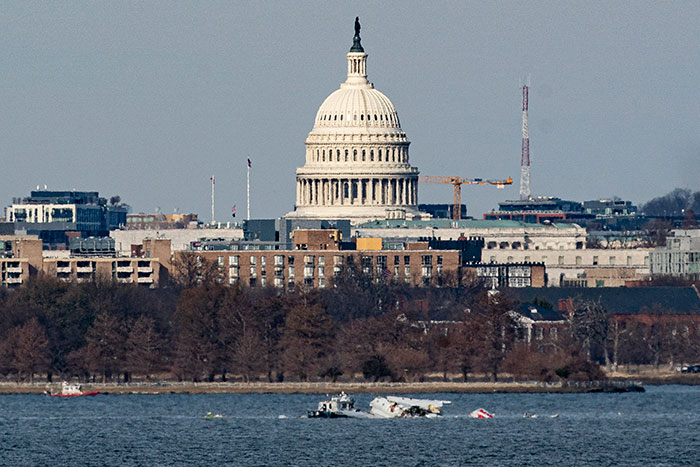Chesley B. “Sully” Sullenberger, the pilot who safely landed a passenger plane in the Hudson River in 2009, said a combination of two factors might have contributed to the American Airlines flight colliding with a helicopter.
The crash occurred late Wednesday (January 29), and according to President Trump, none of the 67 passengers survived.
In an interview with The New York Times, Captain Sullenberger explained what factors could have made avoiding the chopper harder.
Captain Sully suggested that at least two factors may have made it more difficult for the American Airlines flight to see the helicopter before the D.C. crash
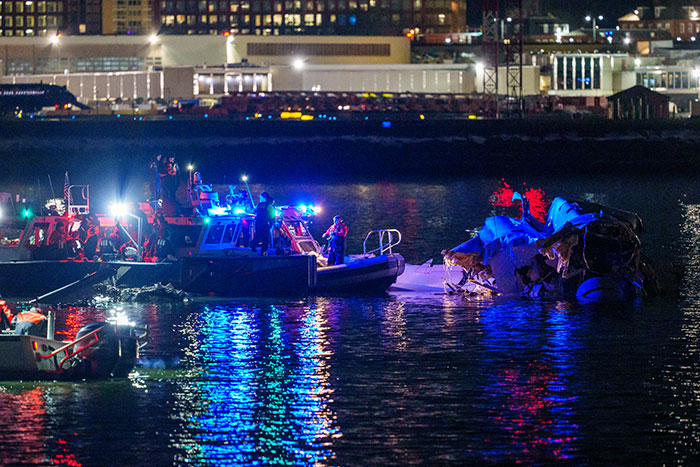
Specifically, he pointed to nighttime and the presence of water.
“Nighttime always makes things different about seeing other aircraft — basically all you can do is see the lights on them,” Captain Sullenberger said on Thursday (January 30).
“You have to try to figure out: Are they above you or below you? Or how far away? Or which direction are they headed?”
“Everything is harder at night,” he summarized.
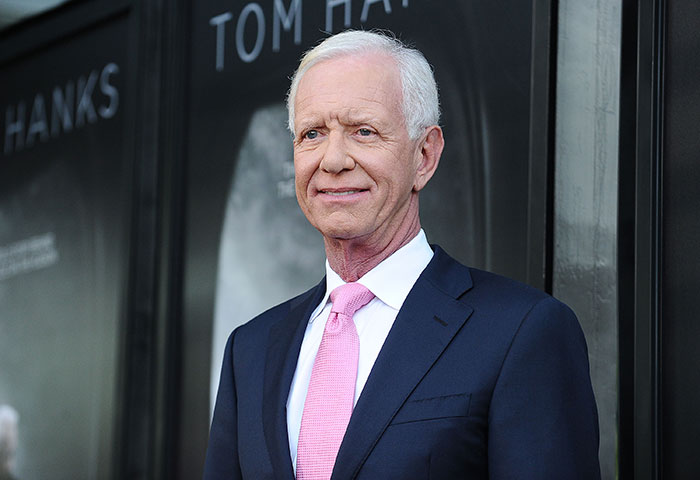
The pilot remains cautious about drawing conclusions and assigning blame, as the cause of the crash—the deadliest aviation disaster in the United States since 2001—is still under investigation.
“There would have been fewer ground lights visible over the water than over land at night,” he continued.” It might have made it a little bit harder to see. But that’s a supposition. We don’t know.”
Captain Sullenberger also mentioned the “old” technology in the Reagan National Airport, which is 5 miles (8 km) from Washington D.C. and is considered one of the country’s most challenging airports to navigate.
The airport, which opened in 1941, requires additional training for pilots who operate from it, fields heavy traffic, and has short runways, he said.
The commercial plane collided with the chopper on descent into Reagan National Airport, submerging both aircraft into the Potomac River
Image credits: Al Drago/Getty Images
“It hasn’t changed much since then. Of course, we’ve added technology to it. But a lot of the technology is old.”
The National Transportation Safety Board announced on Thursday that it was at the scene of the crash and was investigating.
Captain Sullenberger said he hoped that the cockpit voice recorder, the in-flight data recorder and air-traffic control radar data would shed light on what went wrong.
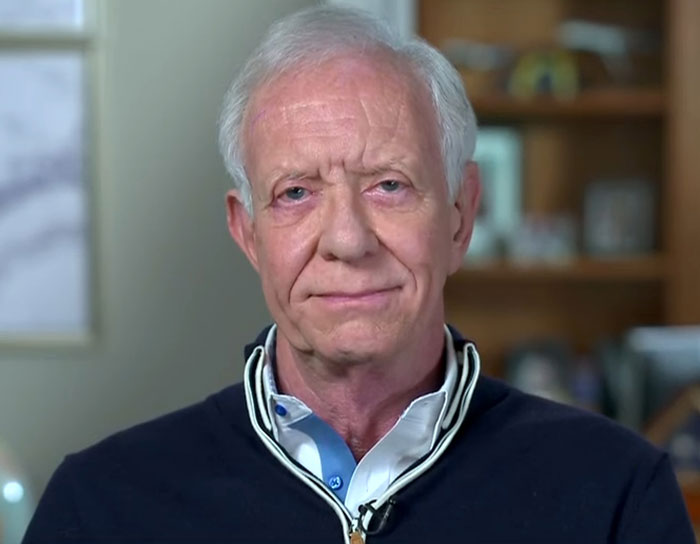
Speaking on Good Morning America, the famous pilot discussed the air traffic control communications, in which the helicopter crew seemingly confirmed they were able to see the plane before the crash.
“The air traffic controller was able to relieve himself of the requirement to have him separate the airplanes, and the pilots would have to separate from each other visually by identifying the other aircraft and staying a safe distance away. Obviously, at some point, separation was tragically lost.”
“There would have been fewer ground lights visible over the water than over land at night,” explained Captain Sullenberger, who famously landed a plane in the Hudson River in 2009
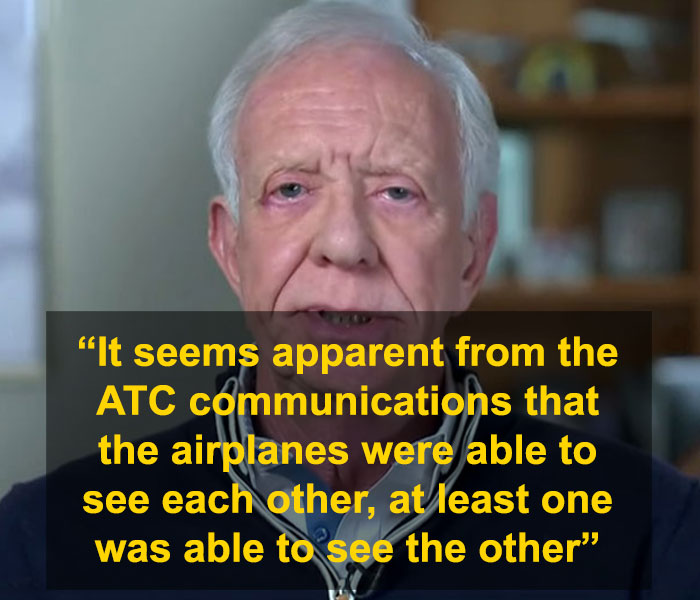
Captain Sullenberger stressed that the accident on Wednesday night came at an “exceptionally safe” moment in aviation history, but noted that more safeguards exist than people realize to maintain that safety, and a single mistake can trigger a domino effect, leading to a catastrophe.
“We’ve had to learn important lessons literally with blood too often, and we had finally gotten beyond that to where we could learn from incidents and not accidents.
“It’s hard to have the diligence and the dedication to adhere to best practices every minute of every hour of every day, every week, every month, and every year for a decades-long aviation career. Any lapse could potentially be fatal, even though we have a lot of safety.
“If all the dominoes line up in the wrong way, we could have on rare occasions a catastrophic event.
All 67 passengers are dead, confirmed President Donald Trump
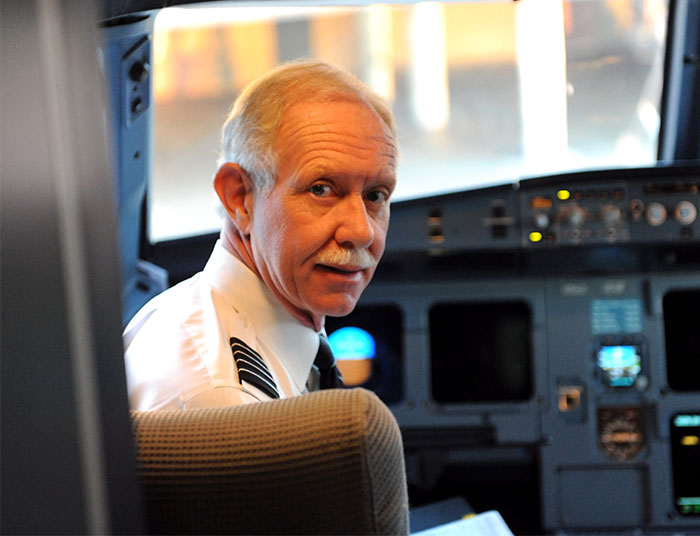
“Given enough time, given enough flights, given enough flight hours, eventually whatever can happen will happen unless we work very hard to prevent every incident from turning into an accident.
He added: “I’m just devastated by this. We have the obligation to learn from every failure and improve.”
Image credits: WUSA9
The commercial plane collided with the chopper on descent into Reagan National Airport, submerging both aircraft into the icy waters of the Potomac River. All 67 passengers (64 on the plane, 3 on the helicopter) are dead, President Donald Trump said in the White House press briefing room.
The American Airlines Flight 5342 had taken off from Wichita, Kansas, and the helicopter was on a training flight with a crew based at Fort Belvoir in Virginia.
Sully said that the technology at the Reagan National Airport, which opened in 1941, is “old”
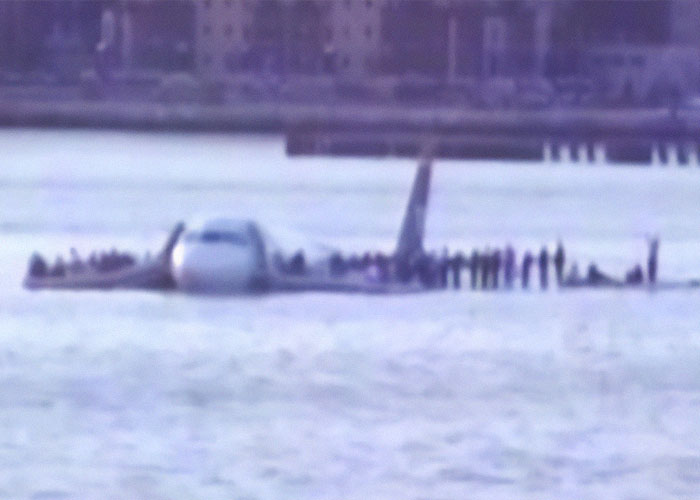
Image credits: TIME
In January 2009, Captain Sullenberger landed an Airbus A320 in the Hudson River. That plane had encountered double engine failure after colliding with a flock of geese shortly after takeoff. All 155 people on board survived the plane’s landing into the Hudson River.
The landing, known as the Miracle on the Hudson, was depicted in the 2016 film Sully, with Captain Sullenberger portrayed by Tom Hanks.
The National Transportation Safety Board said it will issue a preliminary report into the recent crash within 30 days.
Normally, two people manage air traffic control for helicopters and airplanes flying in the area, but only one person was doing so at the time of Wednesday’s crash. According to The New York Times, air traffic control staffing was noted as “not normal for the time of day and volume of traffic” in an internal Federal Aviation Administration (FAA) report.
Watch his statements below:
Image credits: ABC News
The cause of the crash remains a topic of heated debate
